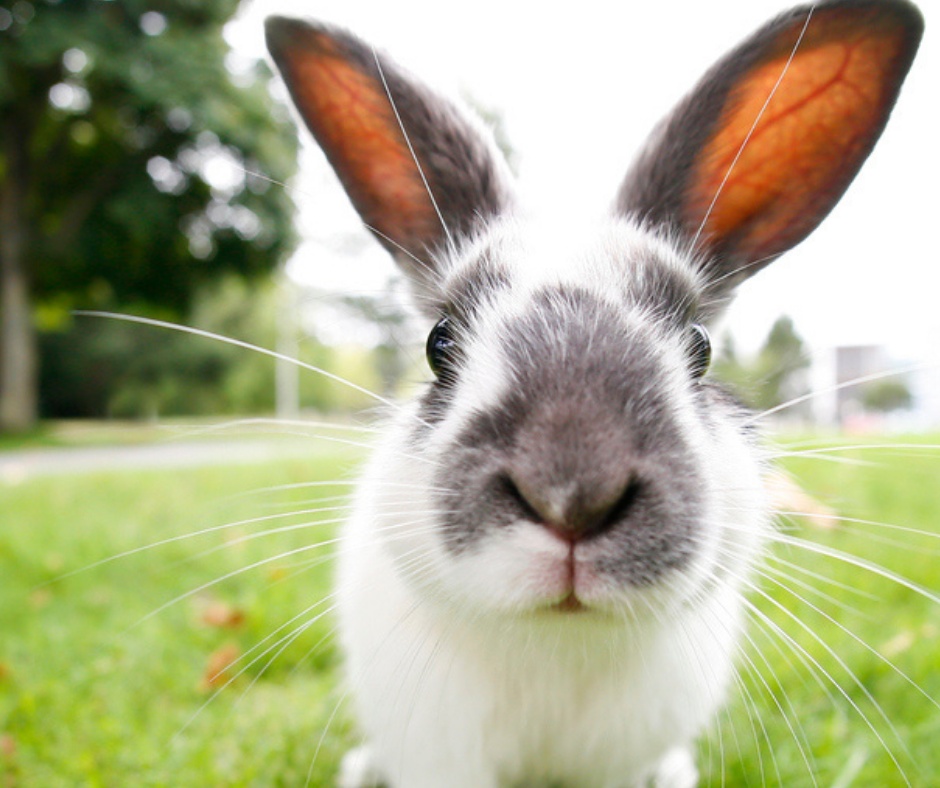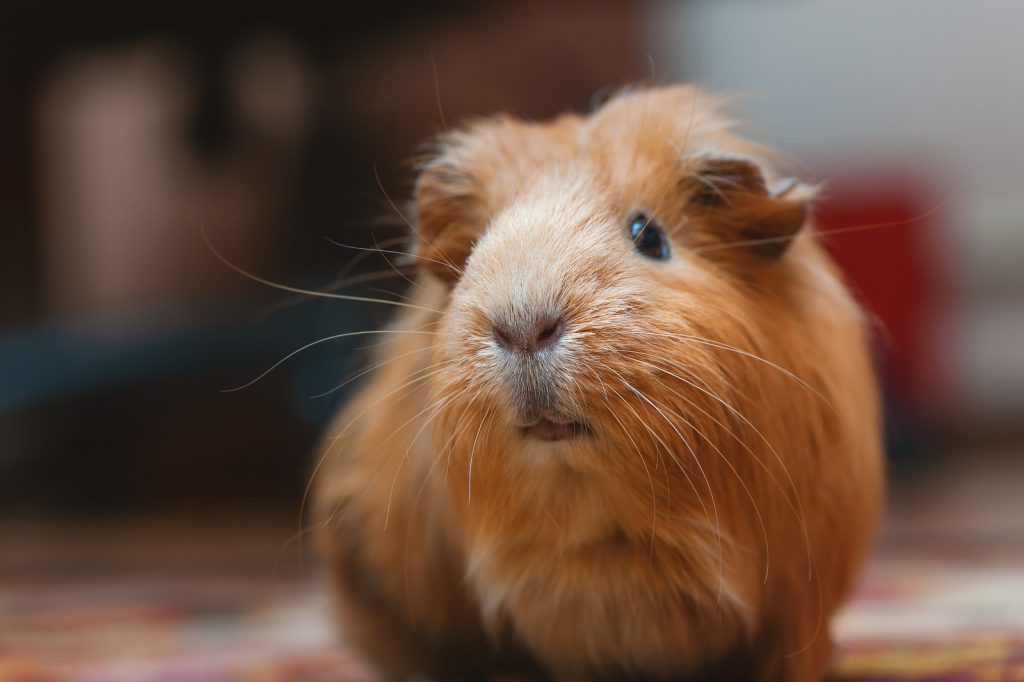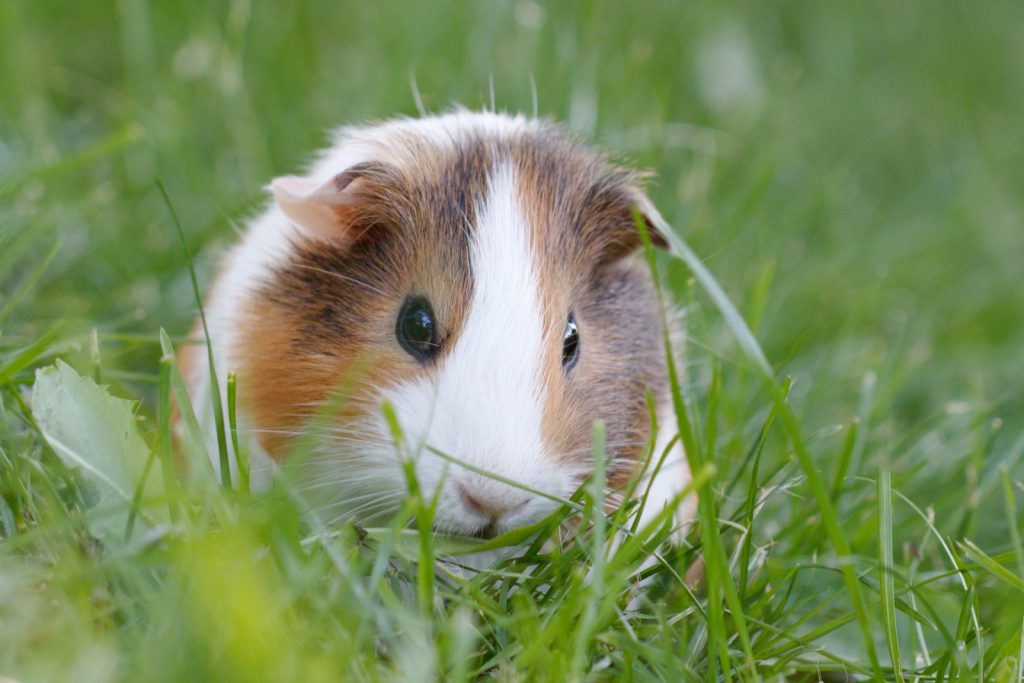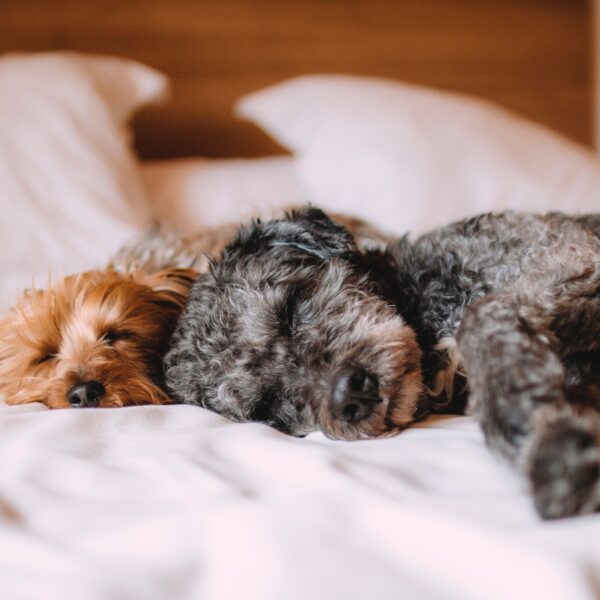Understanding rabbit and guinea pig behaviour.
Have you heard of popcorning and binkying? And why do pigs and bunnies display these behaviours?
This article delves into some of the weirdest and most wonderful rabbit and guinea behaviours.
The binkying bunny.
Have you ever noticed your bunny running along happily, before suddenly leaping into the air while twisting and turning their body around? If you have- this is the art of binkying!
Rabbits will often binky whilst they’re running around having fun and will be much more likely to do this behaviour when they’re feeling safe and secure. Binkying will normally involve your rabbit jumping and shaking their whole body simultaneously, before firmly landing on all fours again and continuing to run around. Most bunnies will binky in the middle of a run, but rabbits can also binky from a standing or sitting position.
It’s important to remember that, as cute as binkying is, it’s very much on your bunny’s own terms whether or not they do it and- try as you might- you won’t be able to teach your rabbit this behaviour.

Why do bunnies binky?
Rabbit behaviour is super interesting, but it can also be quite complex. Rabbits will normally show binkying behaviour as a sign that they are very happy or excited, and you will often see the behaviour when they are lolloping around have fun exploring or playing.
However, your rabbit may also binky for no reason at all! Whilst bunnies often binky because they are having a good time, they can also sometimes start binkying out of the blue, and because it’s a completely natural behaviour this is normally nothing to worry about (more on this below).
And if your bunny isn’t binkying- there’s also no need to panic. Whilst binkying can be a sign your rabbit is having fun if your rabbit doesn’t binky it definitely doesn’t always mean they’re unhappy!
Can binkying be a bad sign?
Whilst binkying is often a sign that your bunny is having fun, it can also be a behaviour that bunnies display when they are stressed or scared. Binkying is a behaviour used by wild rabbits as a defence mechanism to try and confuse predators and prevent rabbits from getting caught. So, bunnies will often show this behaviour if they are feeling threatened, and it will often be accompanied by your bunny running in a zig-zag pattern as, in the wild, this would make them harder for a predator to chase.
As your bunny may binky when they’re happy or scared, it’s important for you to differentiate these emotions, and make sure they’re not binkying because they think you’re a predator chasing them. If you’re not sure if your bunny is scared, it’s best to see if they come to you when you’re playing with them. If they are running away and hiding, it may be because they feel scared. So it’s best to back off and let them run around on their own or with their hutch-mate and make sure they have access to their hutch or hidey-hole so they can hide away if they want to. It’s also important to provide them with a secure and quiet environment to run around in where they can feel safe.
Binkying in baby bunnies!
Like full-grown rabbits, baby bunnies also love to binky around- although they won’t be able to jump quite as high as adult rabbits! Baby bunnies are more likely to binky than adults as they are usually more excitable and like to play a lot. But, as with adult rabbits, babies can binky when stressed, so make sure your baby bunny isn’t binkying because something is worrying or frightening them.
How high can rabbits jump?
Rabbits have very strong hind legs and definitely enjoy a good leap around- with some fluff balls jumping as high as 120 centimetres! However, they are also very fragile, so it’s important to provide them with a soft surface to run around and land on, and also make sure you don’t allow your bunny to jump off of high surfaces- as they could really hurt themselves.

The popcorning piggie
Next, onto popcorning! Unlike binkying, popcorning behaviours are exclusive to guineas, but the behaviour itself is extremely similar. When you see a guinea pig popcorning they will suddenly jump into the air, sometimes having a little shake mid-jump. Popcorning gets its name from the fact that your pig will often resemble a piece of corn popping out of a pan!
Why do guinea pigs jump?
Popcorning or jumping behaviour is more common in baby pigs and is normally a sign your piggie is very happy or excited and is (quite literally) jumping for joy! However, like with rabbits, pigs are also prey animals, and so will sometimes show popcorning behaviours due to fear or stress. Like with bunnies, wild guinea pigs jump around to confuse any predators that are trying to catch them.
It’s really important to make sure your pig isn’t popcorning because they feel threatened and you can do this by always making sure you are slow and gentle when playing with your pig, and always making sure they have a safe and secure environment to play in, as well as the opportunity to hide in their hutch or hidey-hole if they want to.
How high can a guinea pig jump?
The answer is- not very. Because piggies have a round body shape and short legs, while their popcorning is super cute, it probably won’t look as impressive as a binkying rabbit, with most pigs only reaching 10-20 centimetres in height when they jump.

Safety in numbers
Both guineas and rabbits are very social animals so, in order for them to feel safe and happy, it’s best to keep at least two bunnies or pigs housed together. That being said, certain pigs and guineas won’t get on and, whilst it isn’t always possible to tell which personalities will clash, it’s always best to do your research as sex, species and neutering can all contribute to peace in your hutch or run! And, as always, if you’re unsure it’s always best to ask your vet.
Next up, do rabbits and guinea pigs need hay?


